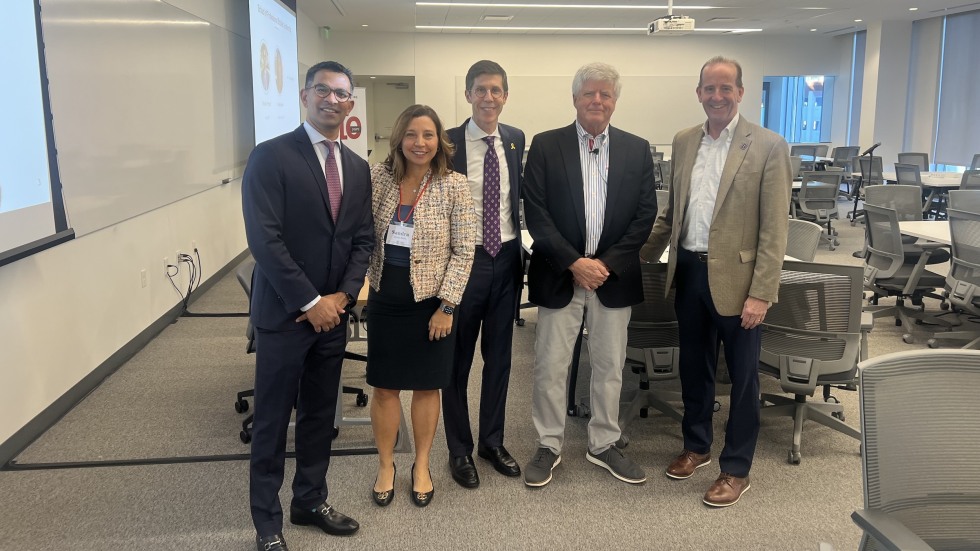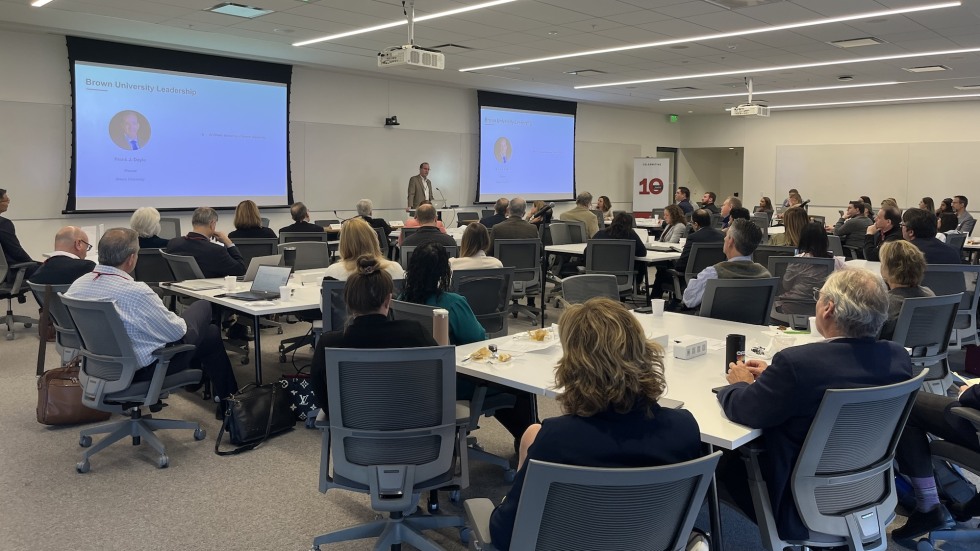The keynote address was delivered by Tom Davenport, a renowned speaker, author, and adviser. Davenport focused on how organizations can make AI work for them, emphasizing the importance of overcoming current challenges.
He highlighted an ongoing debate over AI’s potential, with some believing it will boost productivity and GDP, and others remaining cautious due to the lack of promised returns. He emphasized that AI’s success depends on how organizations integrate the technology.
“To address these issues effectively, I think organizations need to have a disciplined, well-managed approach to AI,” Davenport said. “In general, discipline is not what we do well in the United States.”
He highlighted six crucial disciplines for success with AI:
- Behavior Change:
- Shifting knowledge workers' mindset to use generative AI responsibly and effectively, avoiding misuse like fabricating information.
- Controlled Experimentation
- Testing new technologies in real-world settings to assess their impact and optimize integration for productivity and quality.
- Measurement of Business Value
- Measuring AI's impact on productivity and quality, which can be challenging due to the need for human intervention and the limitations of traditional metrics.
- Unstructured Data Management
- Integrating unstructured data into AI systems, which is challenging due to poor data foundations and the time-consuming, costly nature of data curation.
- Human Capital Development
- Equipping employees with AI skills, as many organizations neglect training, leading executives to prefer hiring new talent over retraining current staff.
- Systems and Process Redesign Thinking
- Restructuring jobs and workflows to leverage AI, requiring careful planning, experimentation and integration for long-term success.
Davenport argues that to unlock AI’s full potential, leaders must confront these challenges directly. By strengthening these key areas, organizations can turn AI from a theoretical idea into a powerful, measurable source of value.
The day concluded with a panel discussion moderated by Baba Prasad, Professor of the Practice of Leadership. “We're no longer talking about technology being one side and humans sitting on the other side. Technology today is doing something that's essentially human, which is intelligence,” Prasad said. “So, how do we integrate these two?”
Panelists included Laurie White, President of the Greater Providence Chamber of Commerce; Pentti Tofte, Staff SVP and Head of Data Analytics at FM; and Mariangela Battista, Vice President of Global Talent at IGT. They shared valuable perspectives on how AI is being applied in the workplace across organizations.
- White shared findings from a survey of 150 Rhode Island business professionals, revealing that 76% are open to AI, with most identifying as novices or enthusiasts. While interest in AI’s potential for innovation is high, many explore it only occasionally, citing ethical concerns. The majority rely on beginner guides and tech blogs for learning, indicating a need for broader AI education. There is also growing demand for workers with interpersonal skills to complement AI, especially in roles that may be disrupted across industries.
- Tofte discussed the emotional responses to AI in organizations, with some employees fearful of job loss and others concerned about falling behind. He stressed the need for leaders to address these concerns and manage AI's ethical implications. Additionally, he pointed out a generational divide, with younger employees more familiar with AI tools, posing a challenge for leaders to ensure all demographics are on board.
- Battista outlined IGT's AI strategy, focusing on governance, communication and human oversight. She says the company has established ethical guidelines and risk assessments for AI tools, but stresses the need for subject matter experts to be involved in AI decisions.
With the collaboration of business leaders, academic experts and industry pioneers, the discussions highlighted the immense potential of AI — and the critical role leadership will play in harnessing its power effectively.

